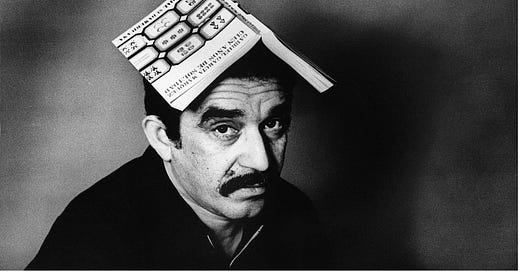Happy Reading
Also: Calvin’s debt to Virgil, George Orwell’s archive, Holocaust tourism, a promising new publishing venture, and more.
Good afternoon! I am running a bit late today, but hopefully this edition of this newsletter will be worth the wait. Over at The Common Reader, Henry Oliver argues that reading helps us live happier, less pessimistic lives:
According to the Pew Centre, back in the 1970s, when news coverage wasn’t so pessimistic, only 8% of Americans reported not having read a book in the last year. That figure now stands at 23%. A new survey from the Reading Agency shows that only 50% of UK adults are regular readers. 35% are “lapsed”. And 15% have never been regular readers. In 2015, 58% of adults were regular readers. And only 8% of adults were non-readers back then. The figures for the 16-24 bracket suggest these figures will continue to decline.
Many reasons are given for this decline: distraction of social media, lack of ability to focus, and feeling bored or uninterested by the reading material. Those who did read reported better mental health, improved sleep and concentration, and better understanding of other people’s feelings. Readers have better life satisfaction.
The reason, I think, is that reading is a solitary activity. Reading requires us to leave the world of arguments, ideologies, news coverage, and TikTok feeds and to exist inside our imaginations for a while. Many solutions are sought to the wide-spread mood of dissatisfaction, not least the prevalence of therapy. But this keeps us focused on what is making us miserable: our own lives, our own problems, the people around us.
Maybe, though I know lots of readers who are downright depressed, and sometimes reading makes it worse!
Reading can even be dangerous for certain people—like for this thief in Italy, who was arrested during a robbery because he got distracted by a book on Greek mythology:
The man, a 38-year-old Italian, gained access to the building in the Della Vittoria district from the balcony but became distracted after seeing a book on a bedside table . . . the owner of the property, a 71-year-old man, woke up and confronted the burglar who was reportedly sitting on a bed absorbed in the book. The burglar then tried to escape from the same balcony but was arrested by police who arrived after being called by the owner.
What was the book? Giovanni Nucci’s Gli Dei alle sei. L'Iliade all'ora dell'aperitivo, which “examines The Iliad from the point of view of the gods while highlighting the interpretative power of the epic work to understand current events.” Can someone translate this book into English? I need to read a work of literary criticism so good it worth risking jail to finish.
In other news, Victoria Moul writes about an under-appreciated aspect of Jean Calvin’s writing—his debt to Virgil: “The first extended quotation in Jean Calvin’s Institutes of the Christian Religion, perhaps the single most influential work of the sixteenth century, comes not from Christian scripture, or the long tradition of commentary upon that scripture, but from Virgil.”
Keep reading with a 7-day free trial
Subscribe to Prufrock to keep reading this post and get 7 days of free access to the full post archives.




